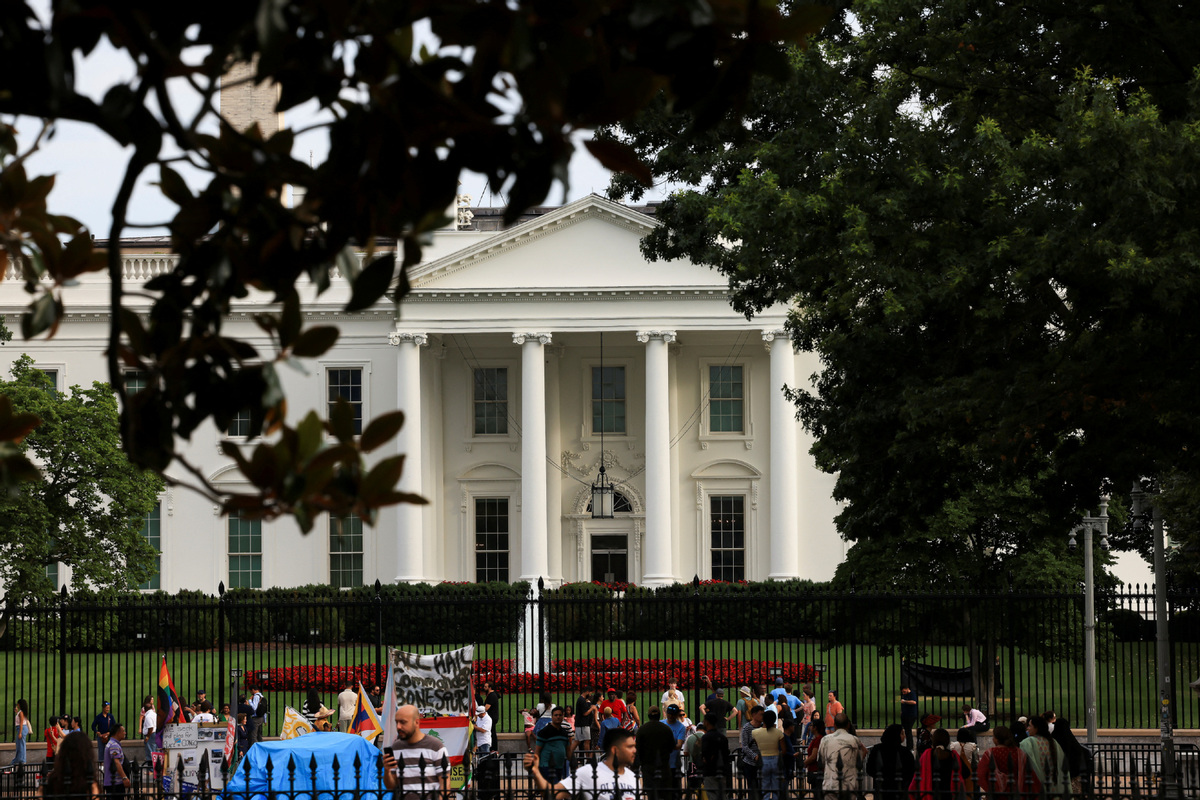The poor earn less, lose insurance under new budget bill


US President Donald Trump's One Big Beautiful Bill Act, which was passed by the House in May, has about twice as many people opposing as supporting it, according to a recent poll conducted by The Washington Post and Ipsos, with about one-third of Americans saying they have no opinion at all.
The poll was conducted between June 6 and 10 with a random sample of 1,167 adults.
Overall, 42 percent of Americans oppose the budget bill, 23 percent support it and 34 percent have no opinion.
About 74 percent of Democrats oppose the bill, while 40 percent of independents and 13 percent of Republicans do not support it.
The poll found that a large number of Americans are not aware of the budget bill, with about two-thirds of those surveyed saying that they have either heard very little or nothing at all about the bill.
The opposition rate among those who said they have heard a great deal or a good amount about the bill is much higher. About 64 percent of the well-informed said they oppose the bill, and only 33 percent said they support it.
At the "No King" protest last Saturday in downtown Houston, one man, waving an American flag, held a sign reading: "My taxes should to go NPR, education, healthcare, museums, national parks and helping people. NOT THE RICH!"
That sentiment is not without foundation. According to an analysis released by the Congressional Budget Office on June 12, if the budget bill is enacted as it was passed by the House on May 22, the 10 percent of households with the lowest incomes will be set back $1,600 a year between 2026 and 2034, resulting in a 3.9 percent income reduction. Meanwhile, the top 10 percent of households with the highest incomes will see those increase by $12,000 a year, up 2.3 percent.
Some of the income reduction for the poor will be through the federal SNAP program, which helps millions of lower-income Americans pay for groceries every month. The bill calls for a $230 billion cut between 2026 and 2034.
The analysis showed that middle-income households will see increases of $500 to $1,000 every year, roughly 0.8 percent.
Millions more will fare worse under the One Big Beautiful Bill Act beyond what some economists called "the wealth transfer from the poor to the rich".
Analysis by the Congressional Budget Office concluded that the bill would increase the number of people without health insurance by 10.9 million by 2034 due to cuts to Medicaid and policy changes to the Affordable Care Act Marketplace, commonly known as Obamacare.
The budget bill proposes cutting federal funding by $793 billion for Medicaid and by $268 billion for ACA Marketplace from 2026 to 2034. The CBO estimated that 7.8 million people will become uninsured due to changes to Medicaid and 3.1 million due to changes to ACA Marketplace. That will lead to a total of 16 million Americans without health insurance.
Another area facing major funding cuts will be tax breaks for green energy, a policy enacted under the Biden administration.
The budget bill proposes to provide $350 billion to Homeland Security and the Pentagon, including about $175 billion for mass deportation efforts, a move met with resistance recently in Los Angeles.
The House bill will allow the government to raise the debt ceiling by $4 trillion. Overall, the CBO estimates that the budget bill will increase America's deficit by $2.4 trillion.
The US Senate released its own version of the bill on Monday night, asking for even deeper cuts to the Medicaid program. It also lowers the state and local tax deduction cap from the House's $40,000 to $10,000.
Not all senators are on board with the bill. Senator Josh Hawley, a Republican from Missouri, expressed his opposition to cutting Medicaid in an op-ed published in The New York Times in May, calling the bill "corporate giveaways, preferences for capital and deep cuts to social insurance."
Another Republican Senator, Rand Paul from Kentucky, said during a TV interview that that he will not support the bill because the Senate has increased the debt ceiling by $5 trillion, more than the House's $4 trillion increase.
































